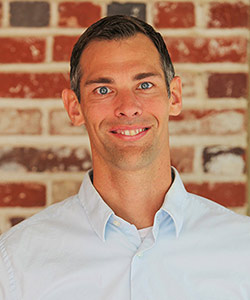By Dr. Thomas J. Bussen

You made it: it’s Friday afternoon. You’re sitting down for happy hour with your friends from work. You look over the beer menu and order last. How likely is it that you allow your friends’ orders to determine your eventual order? For most of us, there’s a pretty good chance that that is just what would happen. But exactly how your friends’ choices affect your beer choice depends on whether you’re more of an individualist or a collectivist. And this, in turn, has important implications for optimal decision-making in the workplace.
Scholar Dan Ariely traveled to a popular brewery at the University of North Carolina at Chapel Hill, approached a table of customers, and offered each of them the choice of one of four types of beer for free. Ariely was not being generous; he was conducting a study.
The name and full description of each beer was provided.i In return, the lucky customers simply had to fill out a short survey documenting how much they’d enjoyed the beer and whether they regretted their decision. Naturally, he had little trouble finding takers, and by the end of the day he’d visited 100 tables, while running up a bill of $1,400.ii
Ariely was surprised to notice a trend, which the data confirmed: once one type of beer was chosen by a member of a table, it was less likely to be chosen by another member of the table. This seemed illogical, to say the least. After all, a beer is no less tasty just because your table mate is drinking it. The survey results showed that the first person to order was typically the most satisfied with her choice, suggesting that subsequent people were making choices based on the choices of their tablemates, and that they were left less satisfied.iii
The Need for Uniqueness
What was going on? Ariely changed the conditions to find out. He asked the next set of customers not to verbally voice their preferred beer, as in the first sample, but instead to write down their preferences on a small menu and keep their decisions private until the rest of the table had ordered.iv Again, they received their beers and filled out the satisfaction survey.v This changed everything. Now, uninfluenced by the choices of their table mates, more people ordered the same one or two kinds of beer, and satisfaction was higher.vi
What Ariely discovered through this experiment was that when people ordered aloud, they were making decisions not based on their actual preferences. Instead, the order was used to signal to the rest of the group that they were unique, autonomous beings.vii The more someone had this “need for uniqueness,” the more likely he or she was to order something different from the rest of the group.viii They did this regardless of their actual preferences, and in fact, this diminished their satisfaction.
It was, in short, about ego, about avoiding the horror of (gasp) conformity. It is not a reach to extend this behavior to business environments, suggesting that at times colleagues may simply disagree in order to distinguish themselves.
The Hong Kong Angle: Collectivist Preferences Revealed
But there’s more to this story. American undergraduate students are consistently rated more individualistic than the average American adult—this, in a society which is already one of the most individualistic on Earth. We can think of individualism as the degree to which one is responsible, first and foremost, for looking after oneself and one’s immediate family. One’s opinions, beliefs, and values need not be shared with the rest of one’s family, and, if the typical American Thanksgiving table is any indication, opinions, beliefs, and values often are not shared by all members of the family.
In collectivist societies, by contrast, ties are further reaching and may include immediate and extended family; friends; and in some cases, one’s community, ethnic group, or religious family (collectively referred to hereafter as one’s “in-group”).ix
Did individualism explain the ego-enhancing decisions of the beer drinking students? Ariely provided the answer to this question through a study with Hong Kong undergraduate students.
These students came from a relatively collectivist culture, though slightly less so than those from less prosperous, less politically-open, mainland China. Here, he found the opposite occurred: when ordering verbally, students didn’t order differently from their table mates in order to stand apart; rather, they ordered more similarly in order to stand together!x They behaviorally showed their collectivist rather than individualist colors.
Once Ariely asked students to write their preferences in private, there was more variance in the types of beer ordered than when they ordered orally. Recall that in America exactly the opposite occurred.
But there was one similarity between American and Hong Kong students: in both cases, the students made decisions that left them less satisfied when they were aware of the decisions of their table mates,xi and they did it on the basis of their relative preferences to be seen as independent or part of the group, respectively.
We can surmise from this study that Americans’ willingness to celebrate their uniqueness may make group work difficult, and may create decisional conflicts which are, ultimately, more about ego than actual differences. But in collectivist societies, where being the nail sticking up is to be avoided, lest you be hammered down, a conformity bias may pose its own problems.xii
The results suggest that for opposite reasons, group decisions are better made independently—at least initially—through anonymous polling or individualized interactions, avoiding the relevant bias of either collectivists or individualists.
Endnotes
- Dan Ariely, Predictably Irrational: The Hidden Forces That Shape Our Decisions 233-234 (Harper Perennial) (2010).
- Ariely at 233
- Id. at 236.
- Id. at 235
- Id.
- Id. at 235-236.
- Id. at 237.
- Id.
- Geert Hofstede, Cultural Constraints in Management Theory, 7 ACAD. OF MGMT EXECUTIVE, 81, 82 (1993).
- Ariely at 238.
- Ariely at 235, 238,
- Henrich, J., Heine, S. J., & Norenzayan, A. (2010). The weirdest people in the world? Behavioral and brain sciences, 33(2-3), 61-83.

Dr. Thomas J. Bussen
Dr. Thomas J. Bussen, with a Doctorate of Business Administration, a JD, and an MBA, is a professor of international business at the African Leadership University in Rwanda and a cross-cultural management coach. He is the author of several cross-cultural books, including Shaping the Global Leader (2019), from which this article is excerpted. He is also the author of The Rising Tide: A Neo-Collectivist Critique of American Individuality (expected, 2022), which makes the case for a more inclusive and globally minded professional ideology.






